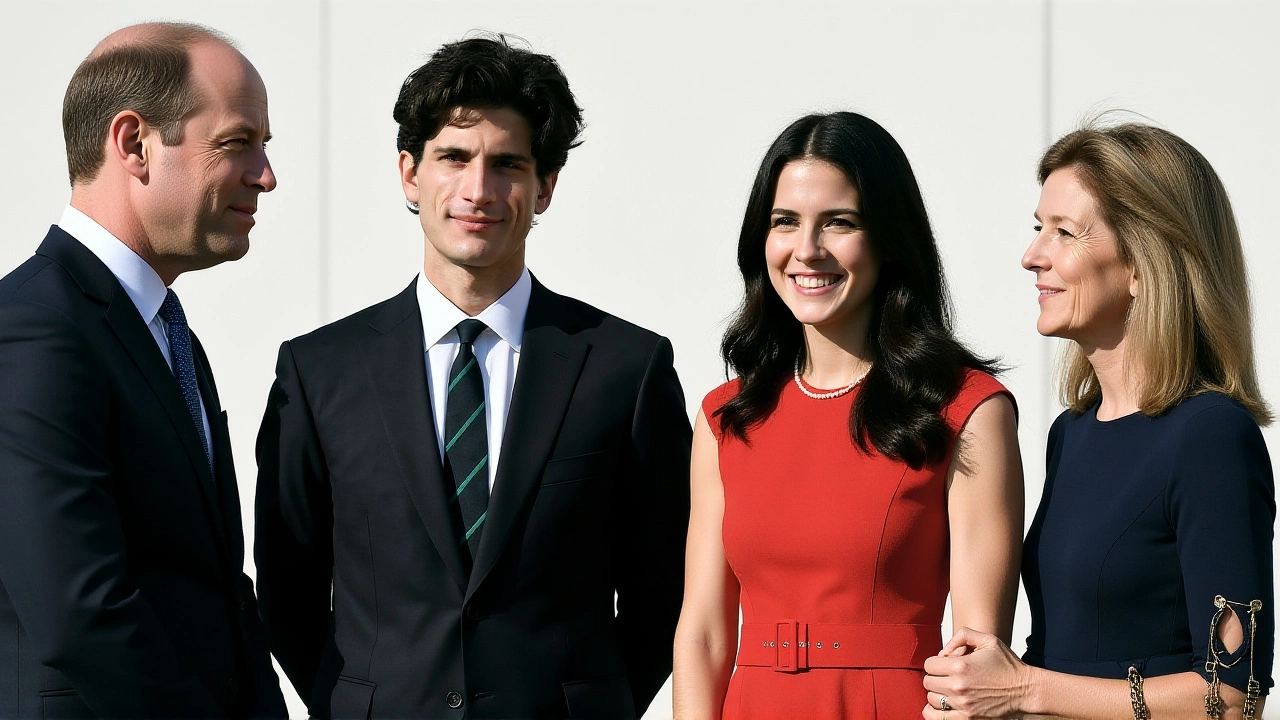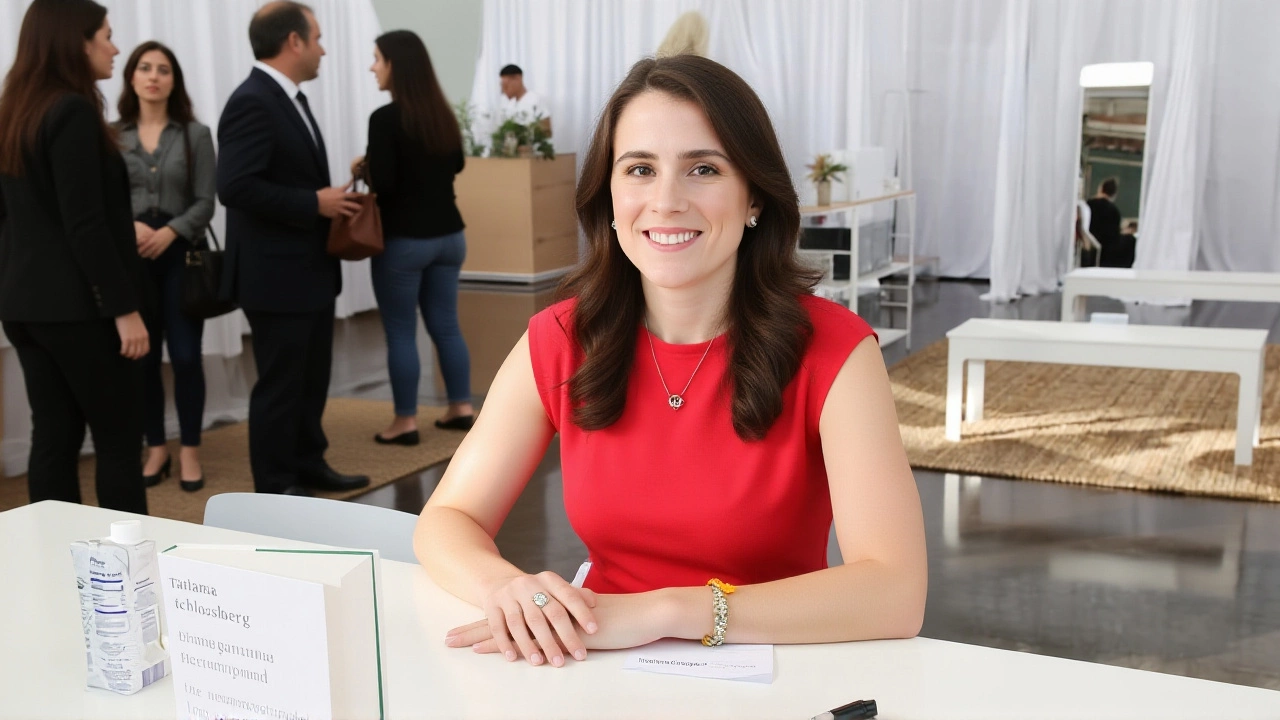On the 62nd anniversary of President John F. Kennedy’s assassination, Tatiana Schlossberg, 35, revealed she is dying — not from history’s weight, but from a brutal, rare cancer that refuses to yield. Diagnosed with acute myeloid leukemia in May 2024, just weeks after giving birth to her second child, Schlossberg’s prognosis is grim: less than a year to live. Her doctors told her they could keep her alive — maybe. But they couldn’t save her. And now, in a searing essay for The New Yorker, she’s not just mourning her own future. She’s holding her cousin, Robert F. Kennedy Jr., accountable for cutting nearly half a billion dollars from cancer research.
"I Watched as Bobby Cut Nearly a Half Billion Dollars"
Schlossberg’s diagnosis came out of nowhere. She’d swum a mile the day before her blood test. She was healthy. She was vibrant. Then, a routine postpartum check revealed her white blood cell count was through the roof. Further testing uncovered Inversion 3, a genetic mutation so rare and aggressive that it typically strikes people in their 60s or 70s — not mothers in their mid-30s. Her cancer didn’t just come back; it came back stronger, after two stem cell transplants — one from her sister, Rose, the other from a stranger. Even experimental CAR-T immunotherapy, the kind hailed as a miracle in oncology circles, barely scratched the surface. "I watched as Bobby cut nearly a half billion dollars for research into mRNA vaccines, technology that could be used against certain cancers," she wrote. The line isn’t just a footnote. It’s a dagger. Because mRNA isn’t just for COVID. It’s the backbone of next-generation cancer vaccines — therapies designed to train the immune system to hunt down tumor cells before they spread. Funding those trials isn’t abstract. For someone like Schlossberg, it’s the last flicker of hope.A Family Divided by Power and Pain
The Kennedy family has long been a symbol of American grace under pressure. But behind the polished public image, there’s been grief, scandal, and now, a fracture wide enough to drive a policy decision through. Robert F. Kennedy Jr., confirmed as United States Secretary of Health and Human Services in early 2025, has been a vocal skeptic of vaccine mandates and mRNA technology — even before he took office. His opposition to public health funding isn’t new. But now, it’s personal. Caroline Kennedy, Tatiana’s mother and former U.S. ambassador to Australia and Japan, publicly urged senators to block Kennedy Jr.’s confirmation. She called his views "dangerous" and "out of step with science." Now, her daughter is paying the price — not just in pain, but in the quiet horror of knowing the man who controls the purse strings of American health policy slashed funding that might have saved her. "I won’t be here to see my daughter learn to ride a bike," Schlossberg wrote. "I won’t be there to help my son with his homework. I won’t get to grow old with George." Her husband, George Moran, is a documentary filmmaker. They met in graduate school. They built a life around books, beaches, and bedtime stories. Now, they’re racing against a clock no one else can see.Why This Matters Beyond One Family
The $475 million cut — exact figure cited in internal HHS budget documents leaked to The New Yorker — wasn’t just a line item. It was a reversal of a decade-long push to repurpose mRNA platforms for solid tumors. Researchers at Dana-Farber Cancer Institute and Memorial Sloan Kettering had two Phase II trials in the pipeline targeting AML with Inversion 3. Both were shelved. The money didn’t vanish into thin air — it was redirected to administrative overhead and vaccine distribution programs already fully funded. "This isn’t politics," said Dr. Elena Ruiz, an oncologist at Johns Hopkins who has treated over 30 AML patients with Inversion 3. "It’s a death sentence for a subset of patients who have no other options. We’re not talking about theoretical benefits. We’re talking about people who could live five years instead of five months. That’s the difference this funding could have made." Schlossberg’s case is statistically unusual — fewer than 15 people under 40 in the U.S. are diagnosed with Inversion 3 AML each year. But her story isn’t. Thousands of patients are losing access to emerging therapies because of budget cuts disguised as fiscal responsibility. The real tragedy isn’t that she’s dying. It’s that she might have been saved — if the system hadn’t chosen to look away.
What’s Next for the Kennedy Family and Cancer Research?
There’s no indication Robert F. Kennedy Jr. has responded to his cousin’s essay. His office has not issued a statement. But pressure is mounting. The American Cancer Society has called for a congressional review of the HHS funding reallocation. Senators from both parties, including Elizabeth Warren and Ted Cruz, have signaled interest in holding hearings. Meanwhile, Schlossberg is writing. She’s recording voice messages for her children. She’s planning a small memorial service — not for her death, but for the research that might still save others. "I don’t want my story to end with anger," she told The New Yorker. "I want it to end with action."Her essay ends with a single sentence: "Don’t let them forget what happens when we stop believing in science — not because it’s inconvenient, but because it’s hard."
Frequently Asked Questions
What is Inversion 3, and why is it so dangerous?
Inversion 3 is a rare genetic mutation in chromosome 3 that disrupts the normal function of genes controlling blood cell development. It’s linked to aggressive acute myeloid leukemia (AML) with a median survival of just 6–9 months, even with treatment. It’s typically seen in patients over 60 — making Tatiana Schlossberg’s diagnosis at age 34 extraordinarily rare and challenging to treat.
How did Robert F. Kennedy Jr.’s funding cuts impact cancer research?
The $475 million cut targeted mRNA vaccine research programs at the National Institutes of Health that were being adapted for cancer immunotherapy. Two Phase II clinical trials targeting AML with Inversion 3 were canceled, halting progress for patients with no other options. The funds were redirected to administrative costs and existing vaccine infrastructure, despite those programs already being fully funded.
Why is mRNA technology relevant to cancer treatment?
mRNA vaccines train the immune system to recognize specific proteins on cancer cells — essentially turning the body into a targeted missile system. Unlike chemotherapy, which attacks all fast-growing cells, mRNA therapies can be designed to seek out only tumor markers. Trials for AML, melanoma, and pancreatic cancer have shown promising early results, making this research a lifeline for patients like Schlossberg.
What’s the public response to Schlossberg’s essay?
The essay has sparked widespread outcry, trending globally on social media. The American Cancer Society and patient advocacy groups have called for immediate congressional hearings. Over 200 oncologists signed an open letter urging the HHS to restore funding. Meanwhile, Kennedy Jr.’s office has remained silent, fueling accusations of political indifference.
How has the Kennedy family responded to this crisis?
Caroline Kennedy has not publicly commented since the essay’s publication. Robert F. Kennedy Jr. has not issued a statement. However, sources close to the family say private conversations have been intense, with some relatives urging reconciliation. Tatiana’s husband, George Moran, has requested that donations in her name go to the Leukemia & Lymphoma Society for mRNA cancer research — not to the Kennedy family foundation.
What can people do to support cancer research now?
Donations to organizations like the Leukemia & Lymphoma Society and Stand Up To Cancer directly fund mRNA and immunotherapy trials. Advocating for congressional oversight of HHS budget decisions — especially those affecting cancer research — is critical. Schlossberg’s story is a warning: when funding vanishes, lives vanish with it.
